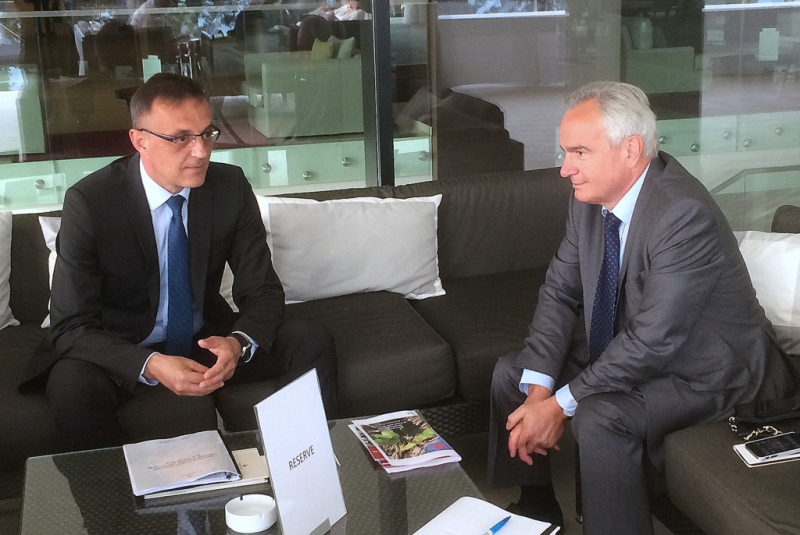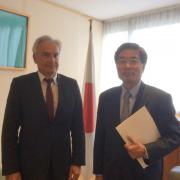
This meeting was a continuation of the visit Jean-Marie Aurand made to Japan last September.
On this occasion, the Director General of the OIV presented the Organisation and its missions to the Ambassador. He also expressed his desire for a closer relationship between the OIV and Japan at an institutional level.
The OIV hosted the first tasting of Japanese wines, organised by the "Koshu of Japan", in 2012.
Jean-Marie Aurand recalled the OIV's availability for a repeat of this type of event.
Japan has a long-standing viticultural tradition. Its production is based particularly on varieties such as Koshu or Muscat Bailey (which produce wines that express the terroirs' characteristics with elegance and refinement) and on the establishment of geographical indications.
In addition, wine consumption in Japan has seen steady and sustained growth. It reached nearly 3.5 mhl in 2014.

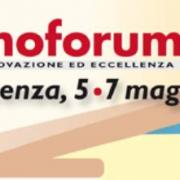
After explaining the role of the OIV, during his participation Guido Baldeschi has presented the recently published report of global state conditions, and the newest winemaking practices adopted by the Organisation (as those being currently evaluated) more precisely:
- the treatment of wines using a membrane technique coupled with activated carbon to reduce excess 4-ethylphenol and 4-ethylguaiacol;
- a Code of Good vitivinicultural practices in order to avoid or limit contamination by Brettanomyces, a monograph on PVI/PVP adsorbent copolymers.
In this sense, the review of the OIV publication “Compendium of International Methods of Analysis of Wines and Musts” counted with approximately 2000 answers which have been collected through a questionnaire sent by the OIV to more than 1000 laboratories: a project which has started in 2009.
Within the themes related to enology and wine production, several topics have been presented at this year’s edition as:
- innovative vineyard practices;
- sustainability and managing;
- how to face old and new diseases of the vines;
- techniques for the color extraction of wine;
- relationship between wine and oxygen;
- malolactic fermentation;
- the use of yeasts and bacteria;
- stabilisation of wine.
In presence of different nation speakers, the Enoforum is an international and unique showcase of what is new for the wine industry.


During this trip, Jean-Marie Aurand was welcomed and accompanied by H.E. Frantisek Lipka, Ambassador of the Slovak Republic in Montenegro and also President of the OIV Award Jury.
The Minister for Agriculture and Rural Development, H.E Dr Petar Ivanovic, played host to the Director General of the OIV at his vineyard and they had a meeting together at the Ministry.
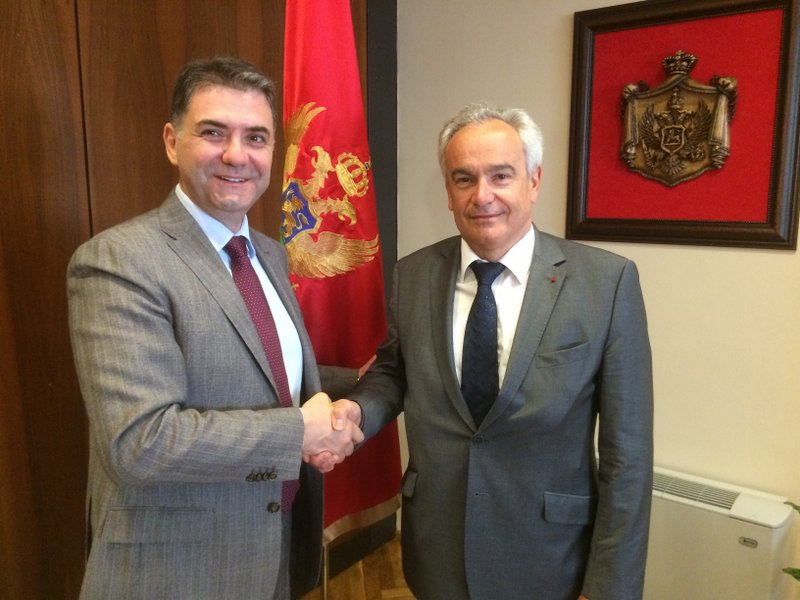
The Minister confirmed his country's commitment to the OIV and expressed his desire to strengthen ties with the Organisation through increased participation of the Montenegrin experts in the work carried out within the various commissions. The organisation of a presentation of wines from Montenegro at the OIV Headquarters was also envisaged for 2016.
Jean-Marie Aurand informed the Minister about the work conducted at the OIV within the framework of the Strategic Plan and assured him of his full cooperation.
The Director General also visited the Plantaze estate – the biggest in Europe with over 2300 ha of vineyards and 17 million bottles produced per year. The vast majority of its wines are exported and have enjoyed great success around the world.
In addition, he gave a conference at the private university in Podgorica.
A member of the OIV since 2007, Montenegro produces quality wines, especially from native vine varieties such as Vranac or Krstac, and wishes to make the most of this potential and modernise its vitivinicultural sector in the coming years.
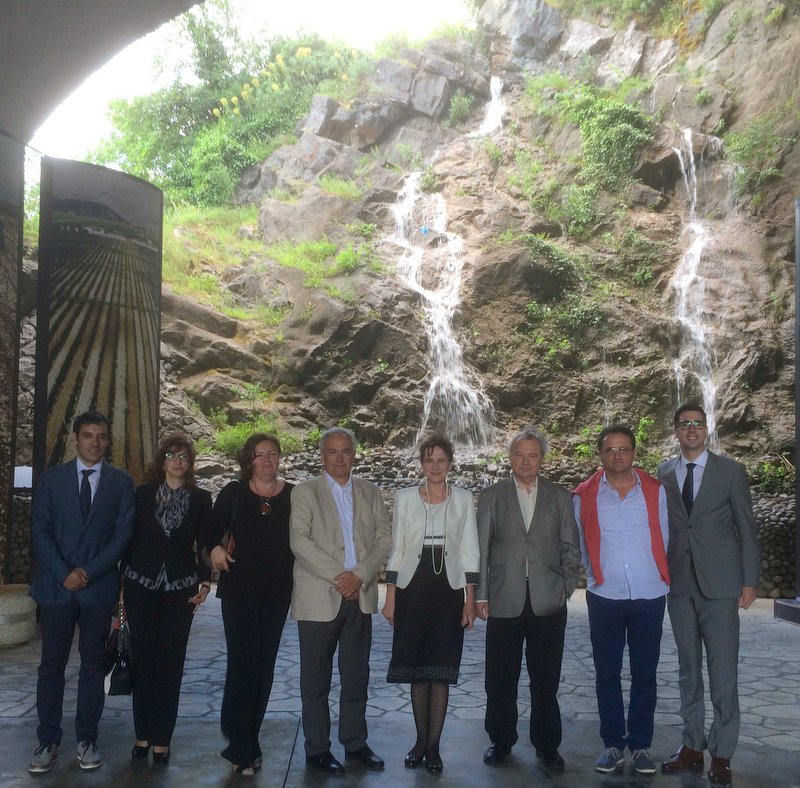

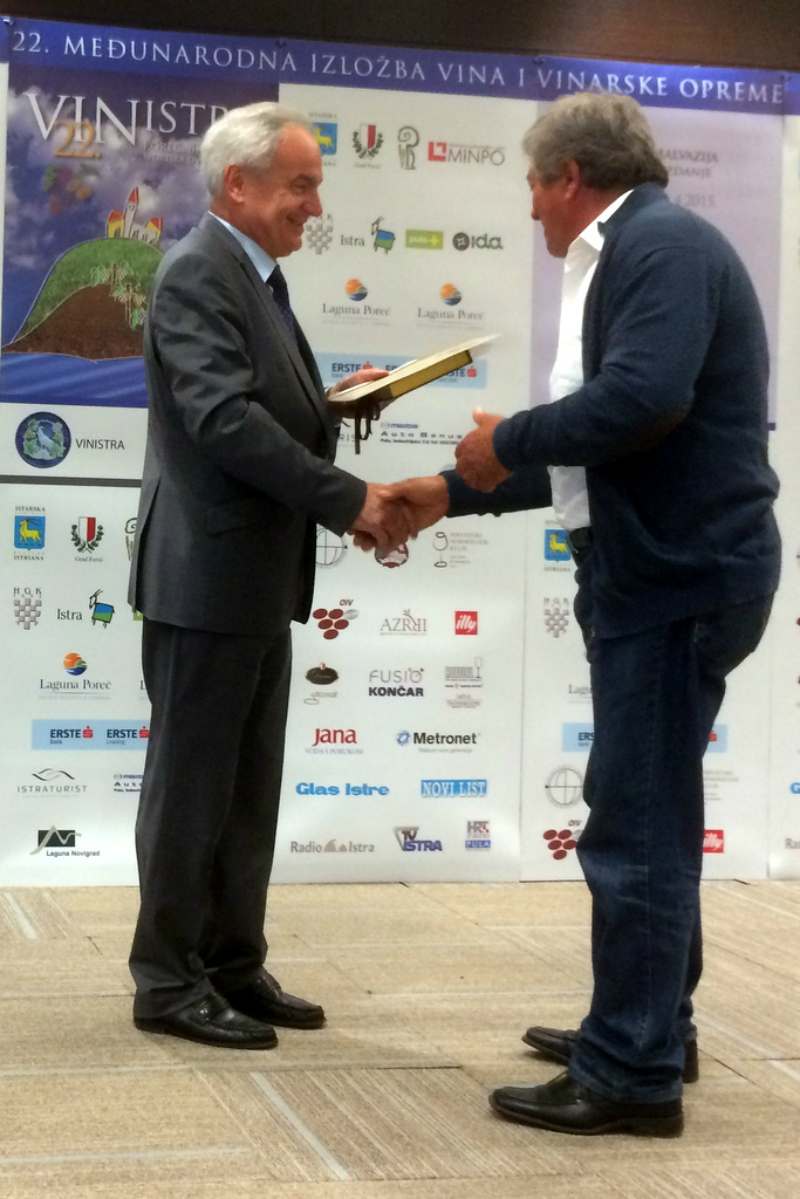
Placed under the patronage of the OIV, this competition brought together 140 wines of the Malvasia vine variety from 5 different countries.
On this occasion, Mr Jean-Marie Aurand met with the Minister for Agriculture, Mr Tihomir Jakovina. He confirmed the desire of Croatia, a member of the OIV since 2001, to continue its involvement in the work of the OIV.
The Director General praised the Croatian experts' contribution to the activities of the Organisation and also proposed that Croatia organise a wine presentation at the OIV headquarters in 2016.
Croatia has begun a process of modernising its vitivinicultural sector in recent years, especially by promoting native varieties.
